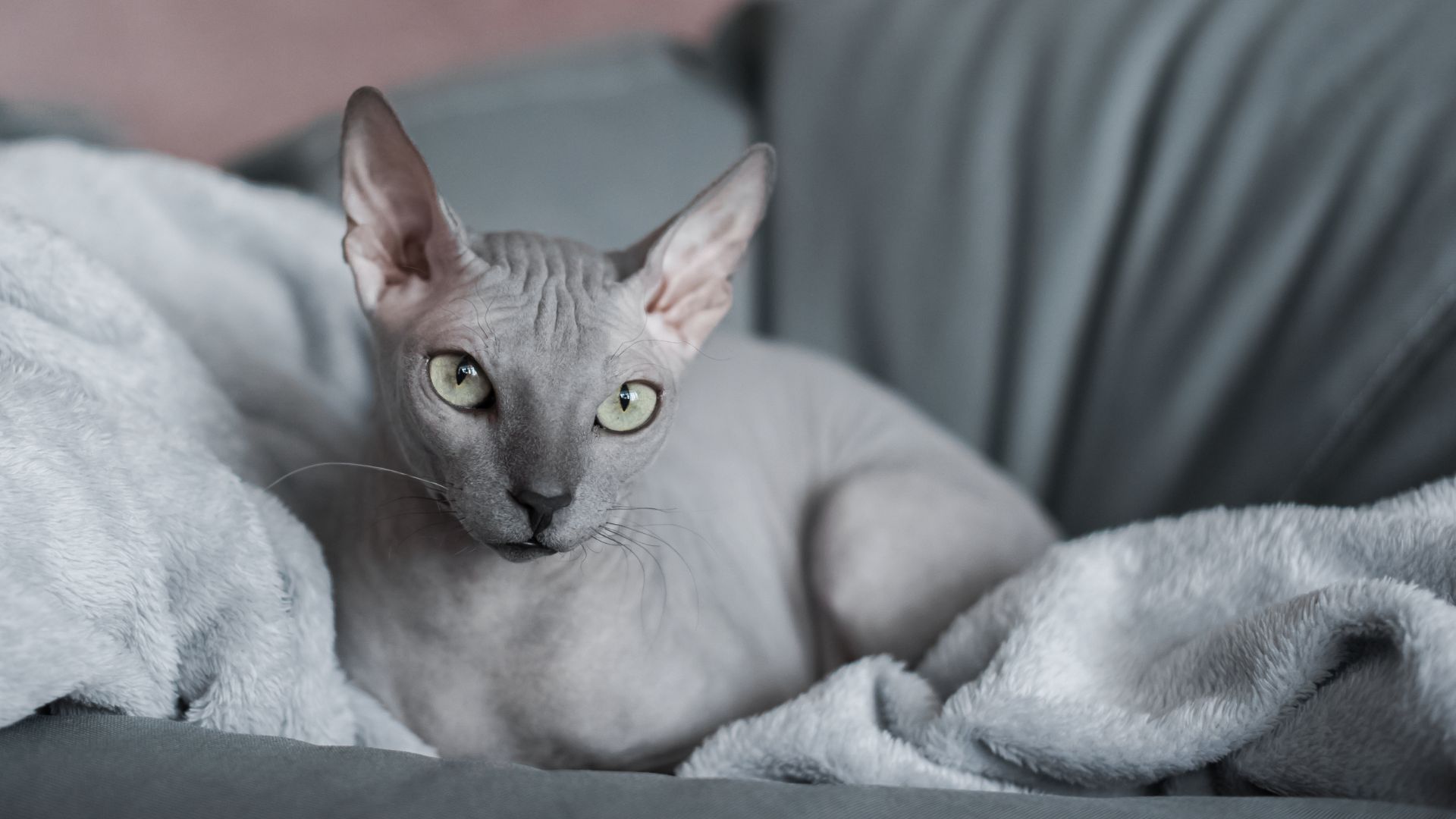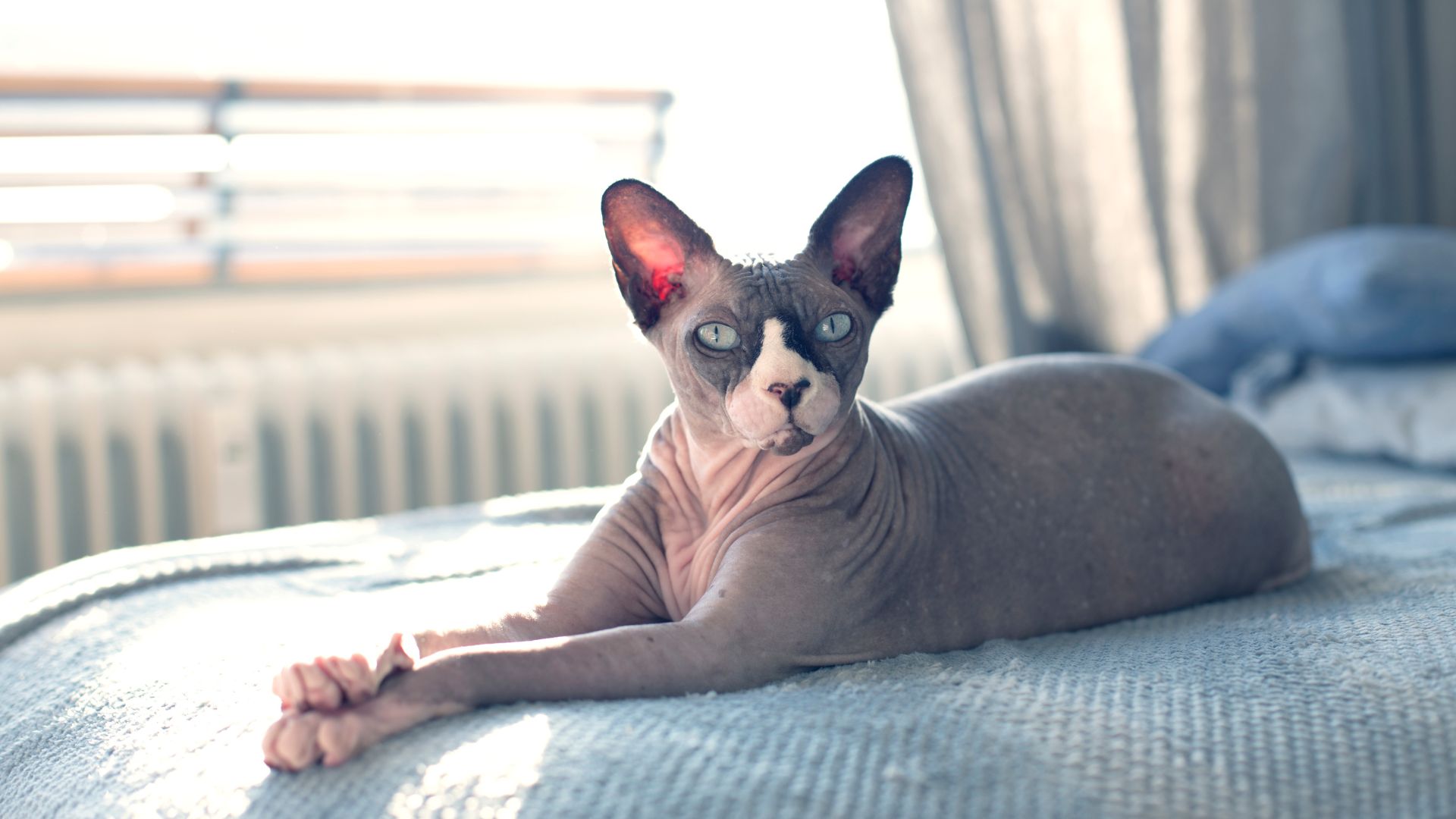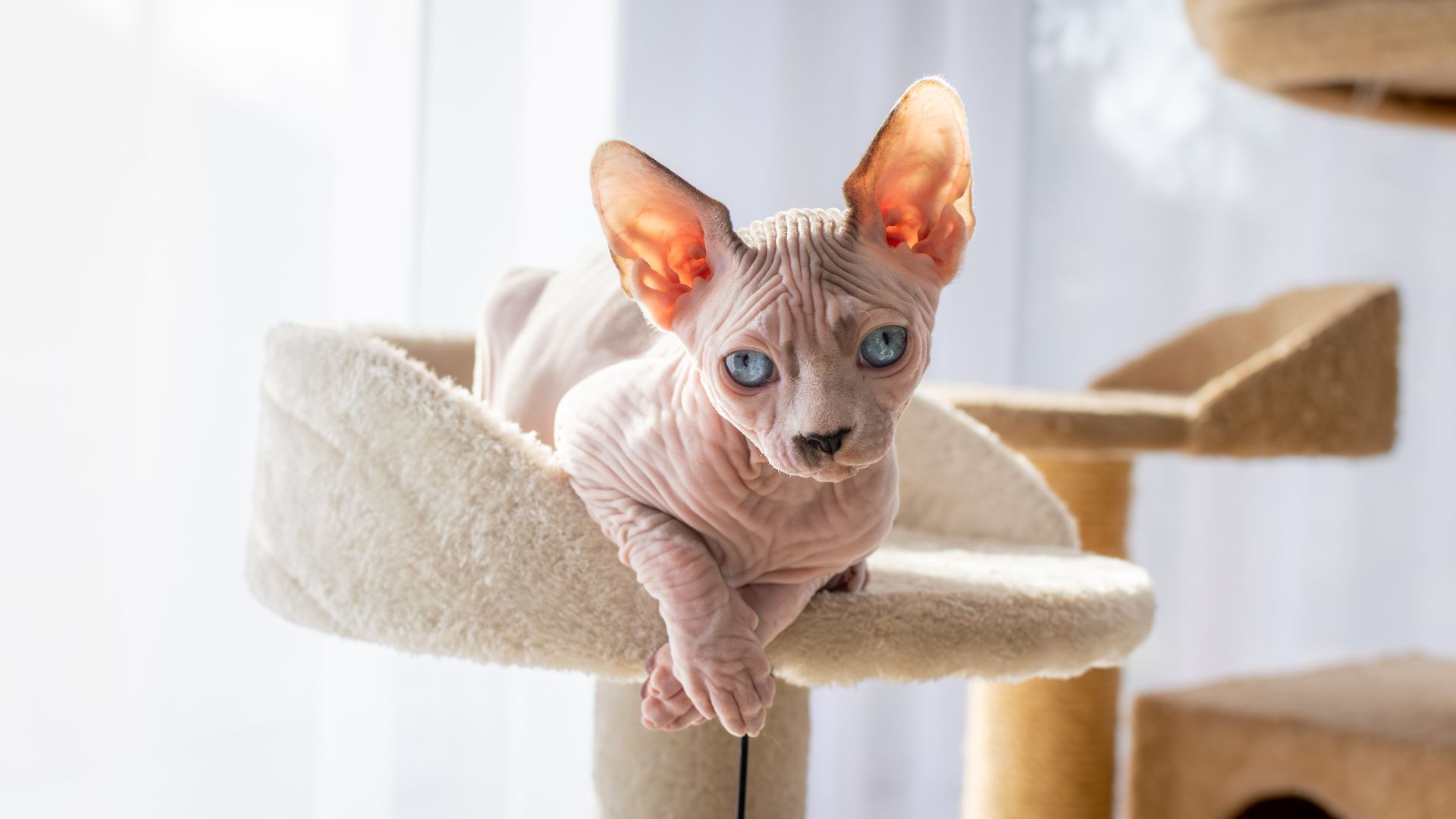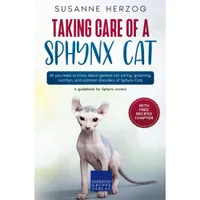The sphynx is the most famous hairless cat—but is this bald and beautiful breed right for your home?
This unique-looking wrinkly sphynx is one of the rarest felines around

Get the best advice, tips and top tech for your beloved Pets
You are now subscribed
Your newsletter sign-up was successful

Other names: Canadian Sphynx
Life expectancy: 8–16 years
Size: Between 6–12 lbs in weight and 8–10 inches tall
Coat: cream, chocolate, white, black, blue or red; in a variety of tabby patterns, tortoiseshell, calico or bicolour variations
Eye colour: blue, green, amber, orange, brown, yellow, or even two different colored eyes
Temperament: curious, affectionate, intelligent and extroverted
Origin/native country: Canada
Here's a fun fact for you: did you know that the iconic sphynx cat came into existence in 1966 when a domestic shorthair gave birth to an aptly named hairless kitten, Prune, in Ontario?
Unfortunately, despite breeding efforts, Prune’s line died out in the 1980s. But that's not where the bloodline of this wrinkly feline ends. A similar natural genetic mutation occurred in the 1970s when a farm cat gave birth to two smooth kittens in consecutive years. Both bald kitters were sold to a breeder who crossbred them to develop the lovable sphynx we know and love today.
While this bald and beautiful hairless cat breed may look naked at first glance, on closer inspection, you'll discover that the Sphynx has a super soft coat that's often likened to suede. Along with being a pet-loving, allergy-sufferer's best friend, there's a lot more than meets the eye with this breed.
To dive a bit deeper, keep reading as we asked Dr Rebecca MacMillan for her expert advice on everything there is to know about the sphynx.
Are sphynx cats hypoallergenic?
It probably comes as no surprise to hear that a sphynx is considered to be a hypoallergenic cat breed. This unique-looking kitty is often referred to as a hairless breed and a non-shedding cat, so you won’t find fur left all over your home. Therefore, this cat can produce fewer allergens than other feline friends in the cat kingdom.
Of course, if you are intending to bring a sphynx home and you or your household suffers from allergies, it's worth highlighting that all cats produce the allergen FeI D 1, which is found in feline saliva. And, when cats lick their coats or shed, this allergen can be released into the environment, causing allergic reactions.
Therefore, there is no breed that is truly 'hypoallergenic'. But a sphynx's near-nakedness means it produces fewer allergens than many of its furrier counterparts.
Get the best advice, tips and top tech for your beloved Pets
Are sphynx cats good pets?
Sphynx cats are favored for their loving and sweet nature. They also love attention and have many mischievous (but lovable) ways.
“All the sphynx I have seen in practice have been very gentle and even-tempered,” Dr MacMillan confirms. “This means they would suit most families if their care needs can be met.”
And despite their lack of fur, this loveable fur friend still enjoys receiving lots of hugs and strokes—and you will too, as their skin is warm—they're like your own personal hot water bottle!
“Sphynx are more sensitive to temperature changes than other breeds, so they are more suited to an indoor cat lifestyle,” Dr MacMillan says. “They would be best with an owner who can meet their grooming requirements and provide them with plenty of attention and fuss.”
Wisdom Panel Cat DNA Test | Amazon
Not sure exactly what breed your cat is? This kit screens for 70+ breeds, 45 genetic health insights and 25+ physical traits – because knowing every detail about your cat helps you understand how best to care for them.
Sphynx cat health problems
Unfortunately, their exposed skin puts sphynx cats at a greater risk of skin complaints and ear infections.
“If they are not bathed regularly, they can experience greasy, itchy patches of seborrhoea,” Dr MacMillan says. “Too much sun exposure is a risk, with sphynx cats having a greater chance of developing cancer such as squamous cell carcinomas. This breed is also prone to urticaria pigmentosa, a skin condition that causes red crusty sores.”
As with many breeds of pedigree cat, Sphynx are also at risk from hypertrophic cardiomyopathy (HCM).
“This condition causes abnormal thickening of the heart walls, meaning it is unable to pump blood effectively around the body,” Dr MacMillan notes.
You should ensure that your sphynx cat is fed a good quality, complete diet which is appropriate for their age. Vaccinations, anti-parasite treatment, oral care and neutering are also important to keep your cat as healthy as possible.

Are sphynx cats high maintenance?
Regular bathing is essential for these furless cats. While its lack of coat means it won’t need brushing, the breed still needs frequent baths or sponging down to stop oil build-up on its skin.
Explaining why, Dr MacMillan says: “Sphynx cats need regular bathing to remove excess body oils from their skin. In normal cats, these oils would naturally be dispersed through their fur. “
Their lack of fur also makes them more at risk of sunburn than other cats. Therefore, Dr MacMillan highlights: “Their exposed skin needs to be protected from the sun.”
“This breed is perhaps best kept indoors to keep them safe from sun damage and skin cancer,” Dr MacMillan says. “Alternatively, you could consider the use of pet-safe sun lotion and limiting your cat’s time outside when UV rays are at their strongest.”
How much exercise does a Sphynx need?
If you’re looking for a low-energy cat breed, you won’t find it in a sphynx. These bald beauties need lots of physical and mental stimulation, although they are very happy to play independently and can do so to their heart’s content with the best interactive cat toys when you’ve got other commitments to tend to.
Therefore, like most cats, a sphynx will need around 30 minutes of daily activity. This can range from climbing the best cat trees, sitting on shelving or finding a cat-friendly window perch so they can watch the world go by from different places.
How much does a sphynx cost?
Generally considered to be one of the most expensive cat breeds in the world, a sphynx will cost anywhere between $2,000 to $5,000, so these cats will set you back a pretty penny.
This cost can reach up to $10,000 for some show-quality females.
Of course, the rarity of a sphynx helps to drive up its price. The same goes for its unique breeding challenges and individual care needs.
Should I get a sphynx?
The question we all want to know! For starters, due to their hairless quality, a sphynx will have different needs to most other four-legged friends in the cat kingdom. This includes regular bathing or sponging down to stop oil buildup on its skin. This kitty will also need extra protection from the sun.
However, it’s worth noting that what a sphynx may lack in fur, it more than makes up for in its chatter. Along with being chatterboxes, they also are considered to be dog-like in their behaviour—so if you’re not ready to welcome a dog into your home but are after a cat that will be a brilliant substitute for one, the sphynx could well be the cat for you.
Price will be another influencing factor. But either way you look at it, a sphynx is a brilliant breed of cat who are affectionate, loving and loyal in nature. So much so, they are considered to be one of the best emotional support animal breeds.
Taking Care Of A Sphynx Cat | Amazon
This book contains all you need to know about general cat caring, grooming, nutrition, and common disorders of sphynx cats.
Read next: Facts about sphynx cats

Having graduated in 2009 from the Royal Veterinary College in London as a veterinary surgeon, Rebecca is highly experienced in first opinion small animal practice, having done a mixture of day-to-day routine work, on-call emergency duties and managerial roles over the years. Rebecca recently achieved a BSAVA postgraduate certificate in small animal medicine (with commendation).
Rebecca writes on various feline and canine topics, including behavior, nutrition, and health. Outside of work and writing she enjoys walking her own dog, spending time with her young family and baking!
Edited by Georgia Guerin.

Becks Shepherd is a lifestyle journalist who has worked with titles such as Tom's Guide, Marie Claire, and Fit and Well.
In addition to this, she’s a pet writer with nearly a decade of editorial experience across digital and print media. A devoted “dog aunt” and lifelong animal lover, Becks brings a personal touch to her pet content—whether she’s testing the latest dog gear or digging into behavioral tips.
She works closely with veterinary experts to ensure factual accuracy and is currently exploring animal care certifications to deepen her knowledge. Her work has appeared in leading outlets across health, wellness, and pet care spaces.


